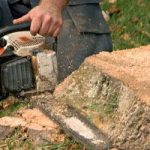Maintaining a functional septic system is crucial for homeowners in Rhode Island. Regular inspections are essential to prevent costly repairs and ensure the system operates efficiently. For residents, a Septic Tank Inspection in Rhode Island can provide peace of mind and safeguard their property. This article delves into the importance of these inspections and offers insights into maintaining your septic system effectively.
Understanding the Importance of Septic Tank Inspections
Septic systems are underground wastewater treatment structures commonly used in areas without centralized sewer systems. They treat household wastewater through a combination of nature and proven technology. Regular inspections are crucial because they help identify potential issues before they become severe problems.
• Preventing System Failures: A malfunctioning septic system can lead to unpleasant backups and environmental contamination. Before they escalate, routine inspections can detect minor issues, such as leaks or blockages. This proactive approach not only saves money but also prevents potential health hazards.
• Extending System Lifespan: Regular check-ups help ensure that all septic system components are functioning correctly. By addressing minor problems early, homeowners can significantly extend the lifespan of their septic system. This is particularly important in regions like Rhode Island, which have stringent environmental regulations.
• Compliance with Local Regulations: Rhode Island has specific guidelines regarding septic system maintenance. Regular inspections ensure compliance with these regulations, avoiding fines and legal issues. An inspection report documents compliance and provides peace of mind and legal protection.
What to Expect During a Septic Tank Inspection
Understanding what occurs during an inspection can help homeowners prepare adequately. A typical septic tank inspection involves several key steps:
• Visual Assessment: Inspectors will first perform a visual assessment of the area around the septic tank. They check for signs of leakage, such as lush vegetation or soggy ground, which can indicate a problem.
• Tank Inspection: The tank itself is then inspected. This involves checking the sludge and scum levels to determine whether the tank needs pumping. The inspector will also assess the condition of the baffles, which are crucial in preventing solids from entering the drain field.
• System Components Check: All components, including pipes, filters, and the drain field, are examined for signs of wear or damage. This comprehensive check ensures that the entire system is in good working order.
• Report and Recommendations: After the inspection, homeowners receive a detailed report outlining the findings. If any issues are identified, the report will include recommendations for repairs or maintenance.
Regular septic tank inspections are a regulatory requirement and a wise investment in your property’s health and value. Keeping your septic system in top condition prevents unexpected repairs and ensures a safe and healthy living environment.
House Doctor Home Inspection Inc. offers expert services for those seeking a reliable partner to maintain their septic systems. Their detailed inspections and professional advice help homeowners keep their systems running smoothly.






